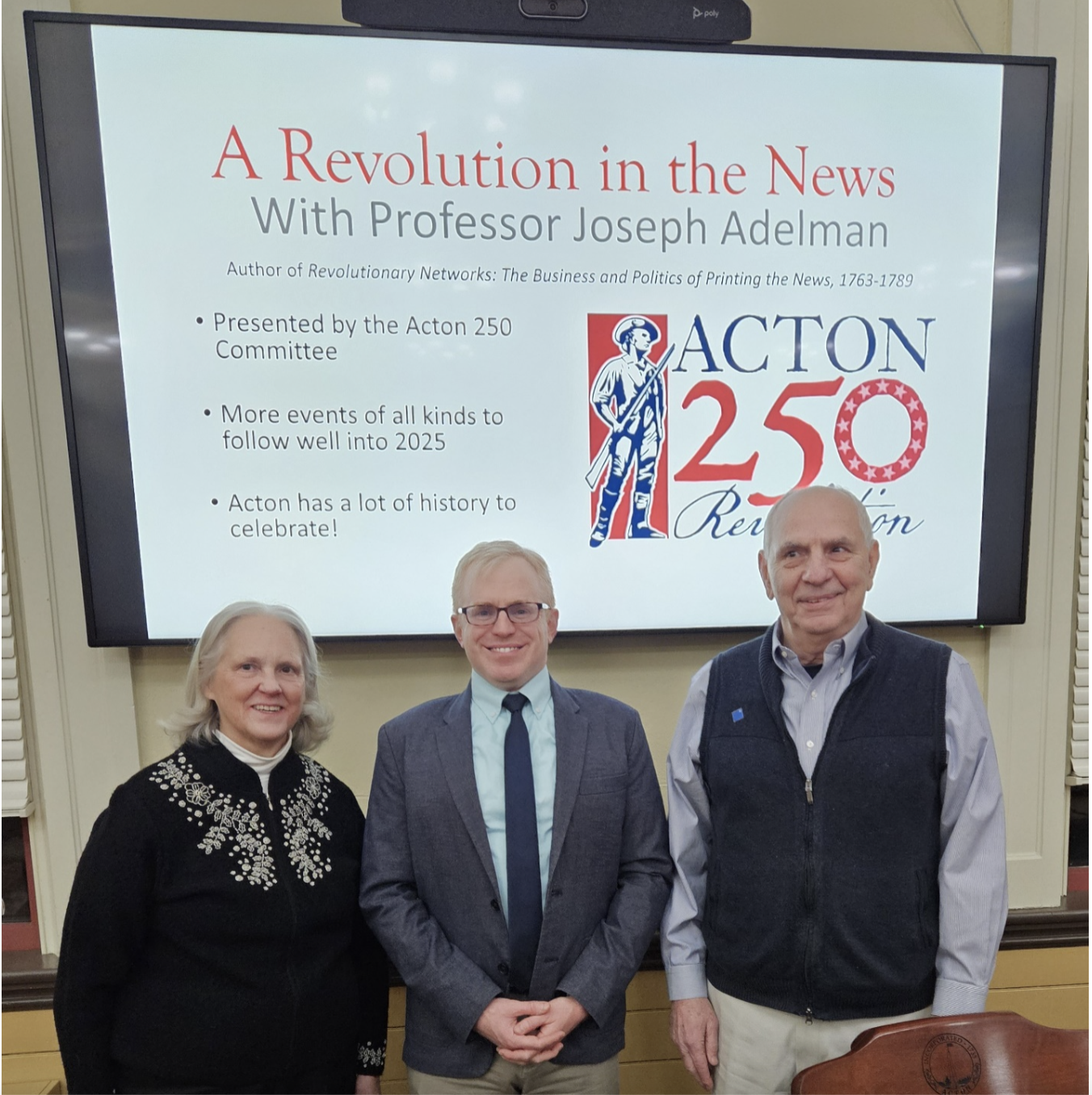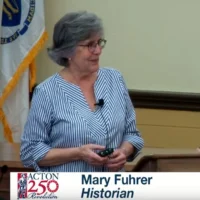Looking forward to next year’s 250th anniversary of the start of the American Revolution, the Acton 250 Committee is hosting a series of lectures by historians, looking back at what the community was like when our nation was born. The third lecture in the series, by Professor Joseph M. Adelman, packed the Faulkner Room at Acton Town Hall on Tuesday evening, Jan. 30, 2024.
Professor Adelman told the story of the Revolutionary War’s forgotten instigators: newspaper printers and editors. Eighteenth-century printers were instrumental in protesting The Stamp Act of 1765, shrewdly gauging the political climate and interests of their communities and balancing them with their own commercial interests. Their editorial opposition to a tax on publications as well as all legal and official papers in the American colonies rallied the public to the revolutionary cause.
Professor Adelman earned his bachelor’s degree in history from Harvard University and a Ph.D. in history from Johns Hopkins University. He currently teaches history at Framingham State University. He is the author of Revolutionary Networks: The Business and Politics of Printing the News, 1763-1789, which won an honorable mention for the St. Louis Mercantile Library Prize from the Bibliographical Society of America. Professor Adelman has published work in the Washington Post, Slate, and The Atlantic, is a regular contributor to the award-winning podcast, Ben Franklin’s World, and serves as an Associate Editor for The New England Quarterly.
During the American Revolution, printed material, including newspapers, pamphlets, almanacs, and broadsides, played a crucial role as a forum for public debate. In his lecture at Acton Town Hall, Professor Adelman argued that printers—artisans who mingled with the elite but labored in a manual trade—used their commercial and political connections to directly shape Revolutionary political ideology and mass mobilization. Adelman told the audience in Acton that printers balanced their own political beliefs and interests alongside the commercial interests of their businesses, the customs of the printing trade, and the prevailing mood of their communities.
Adelman described how these laborers repackaged oral and manuscript compositions into printed works through which political news and opinion circulated. Drawing on a database of 756 printers active during the Revolutionary era, along with a rich collection of archival and printed sources, Adelman analyzed printers’ editorial strategies, summarized the development of the networks of printers, and explained how they contributed to the process of creating first a revolution and then the new nation.
By underscoring the important and intertwined roles of commercial and political interests in the development of Revolutionary rhetoric, Professor Adelman helped to reframe our understanding of the American Revolution. Printers, he argued, played a key role as mediators who determined what rhetoric to amplify and where to circulate it. Offering a unique perspective on the American Revolution and early American print culture, he revealed how these men and women managed political upheaval through a commercial lens.
You can watch the third lecture in the “Acton 250 Lecture Series: A Revolution in the News” on Acton TV.
Greg Jarboe is a former editor of the Acton Minuteman and Concord Journal newspapers. He was an American Studies major at the University of Michigan and studied comparative colonial history at the University of Edinburgh in Scotland.



